
Reality isn’t a theory. It isn’t a concept. It isn’t opinion. Reality doesn’t exist to teach lessons. Reality isn’t fair or not fair. It isn’t right nor is it wrong. Reality just is. If it isn’t reality, it’s fiction. How you think about what’s there can separate you from what is.

If you slip and fall and people laugh, don’t take it personal. Reality isn’t out to get you. It’s the dance of chance and circumstance. It’s slippery. It’s poor shoes, ice, and lack of attention.
Reality is the wind blowing and the hard icy sidewalk upon which you’re falling.
Reality is as Lauryn Hill sang of how it is, “Everything is everything” (1998).
Before you appeared, reality was there. After you appeared, reality was there. After you pass, reality will be there. Where does everything begin? Where does it end? It doesn’t end or begin, such divisions are like chapters in a book.
When you arrive at a state of being there, there is nothing the matter. As you go through your day taking care of business like Elvis, can you say there is nothing the matter? Only those who can, know it is.
Look at yourself looking. If you say, “I know my mind,” who is the one knowing? When you argue with yourself, who’s arguing? You started from your mother’s egg and your father’s seed neither of which is you. When did you become you? Are you a link or the chain?

Reality is the wind that blows. Reality is the cold. Your reality cannot be shared. When the wind blows your house away, reality doesn’t know, nor does it care. It can’t. It won’t. We create reality for ourselves and opinions obscure what is.
Reality is not what you hear. Reality is the sound.
Reality is not what you see. Reality is what’s there.

In The Hitchhiker’s Guide to the Galaxy (1979) Douglas Adams wrote, “The Guide is definitive. Reality is frequently inaccurate.” It’s a joke because reality can’t be inaccurate, but we can—especially if we’re emotional (Psychology Today). Once we believe we are right based on what we see, hear, and remember, it’s hard to be dissuaded. It’s hard to change a perception once we have one.
 The rapper Tupac Shakur defied reality saying, “Reality is wrong. Dreams are for real.” He tattooed “F-✴# the World,” on his back and “Thug Life” on his front. He was gunned down at 25. Was reality wrong or could his murder have been anticipated based on the times and the dangerous game he was playing?
The rapper Tupac Shakur defied reality saying, “Reality is wrong. Dreams are for real.” He tattooed “F-✴# the World,” on his back and “Thug Life” on his front. He was gunned down at 25. Was reality wrong or could his murder have been anticipated based on the times and the dangerous game he was playing?
 The entrepreneur Steve Jobs said, “Reality is flexible.” He thought he could bend reality to his will. He later died regretting nine months of treating his cancer with acupuncture and fruit juice (The Telegraph).
The entrepreneur Steve Jobs said, “Reality is flexible.” He thought he could bend reality to his will. He later died regretting nine months of treating his cancer with acupuncture and fruit juice (The Telegraph).
The science fiction writer, Philip K. Dick (Blade Runner, Minority Report) nailed it when he wrote, “Reality is that which when you stop believing, doesn’t go away.“

Herein is the human conundrum. Reality, as in, “the state of things as they actually exist…,” is objective (“not influenced by personal feelings or opinions…”) and enjoyment, as in, “the state or process of taking pleasure in something,” is subjective (“based on or influenced by personal feelings, tastes, or opinions”) (Google).

But what you want can run counter to what you get. That’s reality. When that happens, you can feel self-pity or anger because the truth about the way things are can be hard to handle.
The trouble is in our interpretations. We’re vulnerable. Our senses can trick us. We’re like a guy in a car who thinks he’s moving (but isn’t) because the car next to him is moving. We misinterpret situations until we realize perceptions are slippery like ice on a sidewalk.
Our subjective reality is “subject” to filters that modify perceptions. Rods and cones in our eyes, sensory processing in our visual cortex, higher-level brain functions, psychological factors and expectations can trick us into thinking that what we’re seeing is real.
Everything is moving, changing and spinning. One spin of the Earth carries it 24,000 miles as it moves about 30 kilometers per second around the Sun which is also moving around the centre of the galaxy at about 230 kilometers per second (Ask an Astronomer). All of this is happening right now without our awareness.

We’re like Whirling Dervishes in a universe spinning, changing and moving and here is the key: The world is right when you are right. You could be in a beautiful place, but not see anything if you’re thinking and feeling annoyed, disappointed, nauseous or angry. A just person is guided by truth, reason and fairness. You can paint the world ugly or become aware of what you’re doing.
The trick is to not believe everything you tell yourself. You could list everything wrong with reality, but why? You could let complaints buzz in your brain like flies in a carcass. You could believe that what you’re telling yourself is factual, or, you can see the truth and realize that mental machinations are like the whisper of falling snowflakes.

To say that reality is like something is to miss it. If you’re not self-aware, thoughts gain momentum. Thoughts can take you out of reality into a head game of self-inflicted brainwashing, but you can train your attention to let thoughts come and go. Open your own eyes. Stand on your own two feet (if you have them). See directly without delusion and act on truth without confusion.
Enjoy being a just being just being there (wherever there is).









 We have a limited idea of who we are. Yes, we are each a bag of skin crowned by a cranium, but do we end in skin? What about air in lungs and energy from the sun in our bellies? Going into atoms we see nothing there – just energy waves. We’re energy waves. Not that this matters when you stub your toe, but a “hard” world is softened with a realization of how interconnected and diaphanous (light and insubstantial) this all is.
We have a limited idea of who we are. Yes, we are each a bag of skin crowned by a cranium, but do we end in skin? What about air in lungs and energy from the sun in our bellies? Going into atoms we see nothing there – just energy waves. We’re energy waves. Not that this matters when you stub your toe, but a “hard” world is softened with a realization of how interconnected and diaphanous (light and insubstantial) this all is.
 What you love is what you enjoy. Enjoyment is a one step process: Express love for something and you are happy.
What you love is what you enjoy. Enjoyment is a one step process: Express love for something and you are happy.




 But when you are lost in gazing at the moon, who are you? Who is the real you – the you who was a child – the secret you – the true you? Who are you when you’re asleep? As Suzanne Little sang in
But when you are lost in gazing at the moon, who are you? Who is the real you – the you who was a child – the secret you – the true you? Who are you when you’re asleep? As Suzanne Little sang in 



 In 1927 a small woman with a big heart named Lee Morse sang, “Oh, we ain’t got a barrel of money. Maybe we’re ragged and funny, but we’ll travel along, singing a song – side by side” (“
In 1927 a small woman with a big heart named Lee Morse sang, “Oh, we ain’t got a barrel of money. Maybe we’re ragged and funny, but we’ll travel along, singing a song – side by side” (“ In 1784 a small man with a big head named Immanuel Kant wrote “
In 1784 a small man with a big head named Immanuel Kant wrote “
 When we try to improve ourselves, we can’t seem to because the one that needs improvement is the one trying to improve! Spiritual entertainer Allan Watts said that it’s the equivalent of trying to pull yourself up by your own bootstraps and it can’t be done.
When we try to improve ourselves, we can’t seem to because the one that needs improvement is the one trying to improve! Spiritual entertainer Allan Watts said that it’s the equivalent of trying to pull yourself up by your own bootstraps and it can’t be done.





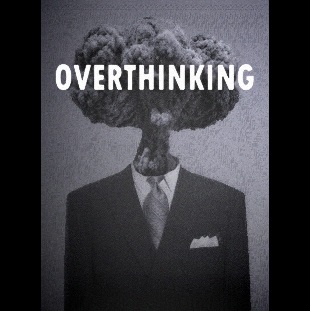 You see, it’s because of our brains. We either over-think and make it complicated, we under-think and act on insane urges or we multi-task and miss everything.
You see, it’s because of our brains. We either over-think and make it complicated, we under-think and act on insane urges or we multi-task and miss everything.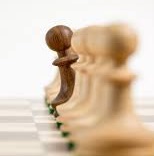 Our brains send messages. Sometimes these messages are destructive—ask anyone in therapy, rehab, prison or who is about to blow himself up. Not only do we deceive ourselves, other people trick us with their deceptions and w can become like pawns in the game of life, sacrificed for someone else’s idea of enjoyment.
Our brains send messages. Sometimes these messages are destructive—ask anyone in therapy, rehab, prison or who is about to blow himself up. Not only do we deceive ourselves, other people trick us with their deceptions and w can become like pawns in the game of life, sacrificed for someone else’s idea of enjoyment. Picture brain messages symbolically like they do in cartoons with a devil-you and an angel-you on each shoulder arguing their case for you to decide (see
Picture brain messages symbolically like they do in cartoons with a devil-you and an angel-you on each shoulder arguing their case for you to decide (see  On one side are symbols of light, innocence and wholesomeness (sappy?) and on the other, just the opposite (exciting?). In the battle between it comes down to focus. What do you choose to enjoy?
On one side are symbols of light, innocence and wholesomeness (sappy?) and on the other, just the opposite (exciting?). In the battle between it comes down to focus. What do you choose to enjoy? Do you take the gentle path of life as represented in Wordsworth’s poem, “I wandered lonely as a cloud; That floats on high o’er vales and hills; When all at once I saw a crowd; A host, of golden daffodils“? Or is that boring? “
Do you take the gentle path of life as represented in Wordsworth’s poem, “I wandered lonely as a cloud; That floats on high o’er vales and hills; When all at once I saw a crowd; A host, of golden daffodils“? Or is that boring? “ Do you prefer your entertainment on the excitingly evil side? How about delightful depravity and edgy cruelty that’s funny too? What’s your pleasure? Do you choose a quiet read, a walk in the park, a pint with a friend, or ‘gorified’ death in a Zombie Apocalypse?
Do you prefer your entertainment on the excitingly evil side? How about delightful depravity and edgy cruelty that’s funny too? What’s your pleasure? Do you choose a quiet read, a walk in the park, a pint with a friend, or ‘gorified’ death in a Zombie Apocalypse? Wholesome isn’t a word used much these days. It alludes to marketing all-natural breakfast cereals and family values but back in the year 1200 wholesome meant “of benefit to the soul.” It comes from the word “whole” meaning “healthy” (undamaged, entire, safe) and “-some” meaning “tending to” (
Wholesome isn’t a word used much these days. It alludes to marketing all-natural breakfast cereals and family values but back in the year 1200 wholesome meant “of benefit to the soul.” It comes from the word “whole” meaning “healthy” (undamaged, entire, safe) and “-some” meaning “tending to” (


 They rattle on. “I’m really enjoying this car. Are you?” “I love it,” says the passenger.
They rattle on. “I’m really enjoying this car. Are you?” “I love it,” says the passenger.

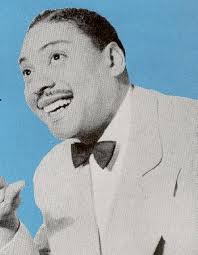
 It’s like what Chris Rock said in Comedians in Cars when Jerry asked him what he thought of a car. Chris Rock said, “I like you Jerry… everything is about the company … If we were in a cab, we would probably be having the same exact conversation.”
It’s like what Chris Rock said in Comedians in Cars when Jerry asked him what he thought of a car. Chris Rock said, “I like you Jerry… everything is about the company … If we were in a cab, we would probably be having the same exact conversation.”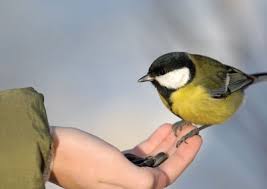

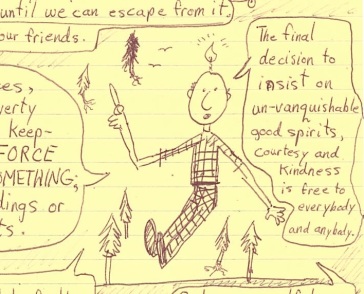
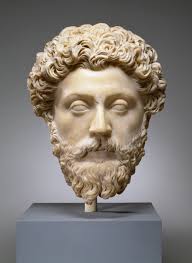
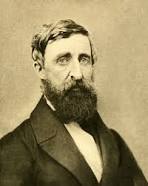


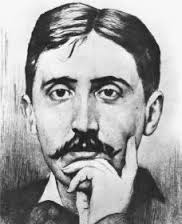






 With imagination (and those mirror neurons), we see from another person’s mind and make choices knowing that another’s well-being is as our own. Kindness towards another is advanced self-interest.
With imagination (and those mirror neurons), we see from another person’s mind and make choices knowing that another’s well-being is as our own. Kindness towards another is advanced self-interest. Train yourself to enjoy like it’s an Olympic event and you’re an enjoyment athlete. Even when you lose, you lose well. Enjoyment hangs like grapes picked like
Train yourself to enjoy like it’s an Olympic event and you’re an enjoyment athlete. Even when you lose, you lose well. Enjoyment hangs like grapes picked like 
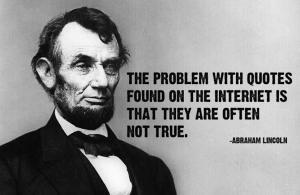






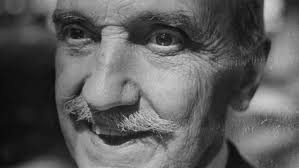

 That isn’t nice.
That isn’t nice.

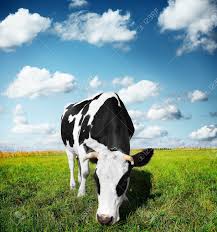

 A lifetime is spent creating the person to whom you think you are, but you are probably more than one person. You act a certain way depending on who you’re with and the situation you’re in. Other people tell you who they think you are (to your face or behind your back). You see yourself as others see you. If you do something out of character, people say, “That’s not you!” or “You wouldn’t do that!” But how do they know what you will and won’t do? Do they know you on the inside?
A lifetime is spent creating the person to whom you think you are, but you are probably more than one person. You act a certain way depending on who you’re with and the situation you’re in. Other people tell you who they think you are (to your face or behind your back). You see yourself as others see you. If you do something out of character, people say, “That’s not you!” or “You wouldn’t do that!” But how do they know what you will and won’t do? Do they know you on the inside?

 We think our thoughts are connected one to another like one day connects to the next, like one month to the next, one season to the next and one year to the next, and so it goes, year to year, but really, each day is a self-contained unit of time that’s been artificially measured by humans who constantly organize and make straight lines in and around the world which we name.
We think our thoughts are connected one to another like one day connects to the next, like one month to the next, one season to the next and one year to the next, and so it goes, year to year, but really, each day is a self-contained unit of time that’s been artificially measured by humans who constantly organize and make straight lines in and around the world which we name. Who are you? You are a living organism and in so living, enjoying. All of it, the good and bad. The good, because it is very good, and the bad because it is temporary – a break – to help you know more good.
Who are you? You are a living organism and in so living, enjoying. All of it, the good and bad. The good, because it is very good, and the bad because it is temporary – a break – to help you know more good.